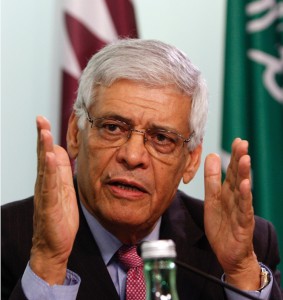
Abdalla Salem el-Badri, OPEC's top leader, said the organization has not set a target price for oil.
Despite speculation that OPEC is manipulating oil prices, the organization has no set price target for oil and will let the market determine what it should cost, said Abdalla Salem el-Badri, head of the Organization of Petroleum Exporting Countries, according to the Wall Street Journal.
The price of gasoline has plunged, again, on the heels of fresh turmoil in the global energy markets, which has continued to unnerve trade and equity markets around the world.
The AAA Gas Gauge estimated Sunday that gasoline price across the United States have dropped another 12 cents in the past week and could drop another 17 cents by Christmas according to AAA. Gasoline prices fell, following another drop in the price of crude oil, which has dropped by 41% since the end of 2013. At the end of last week, crude oil was trading for $57.49 a barrel.
The new drop in the price of crude oil unsettled stock markets and cut more than 300 points from the Dow Industrial average on Friday. The turmoil in the energy sector left shares on U.S. exchanges with their biggest weekly loss in 2.5 years last week.
A worldwide oversupply of petroleum has been blamed for the big drop in prices.
But Suhail Al-Mazrouei, the United Arab Emirates’ oil minister, reiterated over the weekend that Organization Petroleum Exporting Countries had no plans to reduce production.
“We are not going to change our minds because the prices went to $60 or to $40,” Suhail Al-Mazrouei, the United Arab Emirates’ oil minister said at the conference, according to Bloomberg. “We’re not targeting a price; the market will stabilize itself.”
OPEC said in November that it would keep production levels unchanged. Surging production and slower-than-expected demand have kept oil prices tumbling. Stock markets around the world have been unnerved by the plunge in oil prices, currently at their lowest levels in five years.
“Unlike in the past, when they have defended oil prices, they are defending market share,” said Stewart Glickman, group head for energy and materials equity research at S&P Capital IQ. “They are going to face more bloodletting with oil prices until other swing producers feel enough pain to stop drilling.”
(OPEC ensures fuel prices to remain low. For more, Click Here.)
Production of U.S. shale oil has made the United States the second-largest oil producer in the world. However, production of shale oil is more expensive than most other methods, and while the lower prices could reduce drilling in the shale oil areas of Texas and North Dakota in the future, they haven’t yet.
(Click Here for details about Jaguar’s new “transparent” pillar system.)
In fact, production in the U.S. is expected to increase next year as American oil companies finish new wells.
(To see more about Ford’s desire for a review of fuel economy rules, Click Here.)
“Recent market movements highlight the main thing I’ve learned after 35 years in the industry – that predicting the oil price is nigh on impossible,” Ian Taylor, the chief executive officer of Vitol Oil Group of Rotterdam told the 2014 Platts Global Energy Outlook Form in New York City last week.
“A fall in price should not have been a significant surprise to anyone monitoring underlying demand and supply, both of which responded to the signals sent by a market in which the price of oil was $100 a barrel,” said the Vitol chief.

If as some have suggested, OPEC is driving the price down – short term, to drive out the new oil development operations in the U.S., it should only take another year or so to break the U.S. companies and then the prices will jump dramatically once OPEC is back in full control.
Frack8ng is a high maintence production and unless the domestic producers dr8ve down their costs more marginal drill will stop.